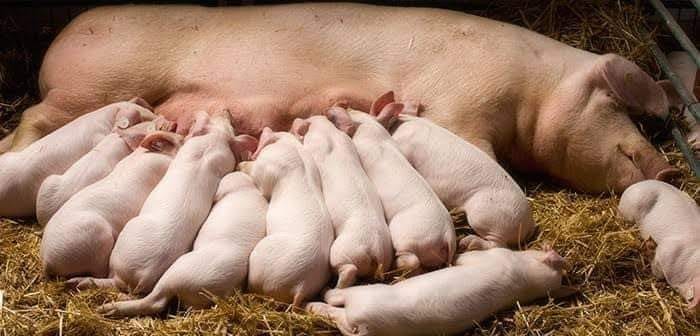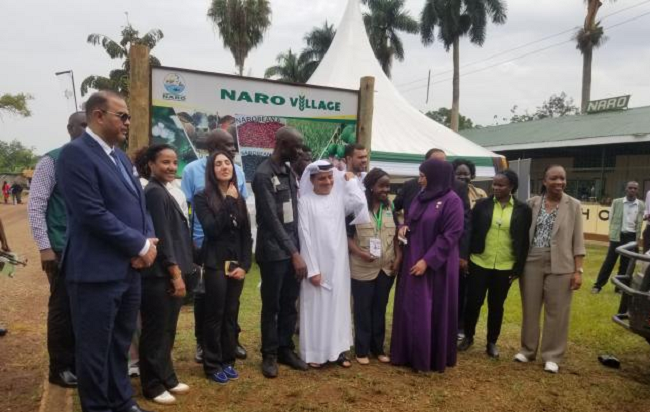By Christopher Mulindwa
After laying a good foundation in the previous articles, we will now start tackling particular areas in the big block of commercial pig farming. These include but not limited to Farm planning, feeds and Feeding, Breeds and breeding, Farm hygiene & health, pig housing, record keeping etc.
We will of course start with farm planning. In nothe coming publications, I will be discussing the average initial cost requirement for setting up different businesses under commercial pig production.
ALSO READ:
GUIDE: What To Consider When Starting UP A Commercial Pig Farming Business (PART 1)
GUIDE: What To Consider When Starting UP A Commercial Pig Farming Business (PART II)
GUIDE: What To Consider When Starting UP A Commercial Pig Farming Business (PART III)
GUIDE: What To Consider When Starting UP A Commercial Pig Farming Business (PART 4)
If you still remember, Commercial pig farming has about three revenue channels i.e.
– Live pigs (For breeding),
– Pork &
– Semen.
Another product is manure. However this still requires us to invest a lot in thinking in order to ascertain how best to process and package it for easy distribution. The way it is sold currently doesn’t enable full exploitation of its potential. The only producers benefiting from pig farm manure maximumly are those integrating piggery with crop production. These use their pig manure as fertilizer in their own plantations.
The revenue channels bring us to the three specialized businesses in commercial pig farming which includes;
1. The Breeding business
2. The Fattening business
3. The Boar stud business
For those who have read my book Farming Pigs For Money, you have read about this in detail. Let me briefly explain the three basing on what I am going to be talking about this week and in future.
a. THE BREEDING BUSINESS
This is the engine of commercial pig farming. Breeders are the drivers of pork business profitability, productivity, taste management and continuity. Breeders own grandparent stock of different breeds which they manipulate through crossbreeding, “genetic engineering”, grading up and high level selection to produce highly proficient gilts and boars of great commercial traits.
The breeding business can be further divided into:
– High level breeders
– Level one multipliers
– Level two multipliers
High level breeders are commonly known as Nucleus farms. In some countries, these are highly regulated and partly running under government supervision. This is partly for purposes of protecting country’s pig genetic resources, ensuring quality consistency preventing life threatening genetic modification strategies. Such farms owns Grand grand parent stock (GGP) so they are producers of Grandparent stock (GP). Unfortunately, no pig nucleus farm whether government or privately owned is available in Uganda currently.
Level one multipliers are distributors of Grandparent stock (GP). They carry out pure breeding of specific breeds. Majority level one multipliers are also engaged in crossbreeding of grandparent maternal breeds (Landrace and Large White) to produce First Generation gilts (F1) for mothering pigs for slaughter. There is only one farm doing this in Uganda currently.
Level two multipliers, these produce piglets for fattening to slaughter (terminal offspring). Some produce them for their own fattening operations (Farrowing to Finish) and others produce them for sale (Farrowing to wean). They cross breed First generation gilts/sows with commercial/terminal boars. Uganda currently has two commercial farms under level two breeders. These are farrowing to finish.
b. THE FATTENING BUSINESS. These are divided into two categories as well. The first category owns parent stock of classic first generation gilts and therefore produce own fattening stock (Farrowing to Finish). The second category just buy fattening stock from level two breeders.
c. BOAR STUD.
Here the farmer own boars of different commercial/terminal lines and use them to collect, process and distribute boar semen to pig producers.
I want to help you assess what it takes to set up any of the above businesses. Let’s start with the breeding business. This can be approached in two ways:
1. Importing grandparent stock
2. Grading up locally available stock
IMPORTING GRANDPARENT STOCK
Here you both need enough money and striking a deal with a breeding company. Africa has but few breeders, many of these franchises of European pig genetics companies. They are trying so hard to protect their monopoly already created so may not support redistribution of genetics to new African countries. The best and cheaper option is the western world where pig breeding businesses are many. These people are trying to find new markets/locations to colonize so you may base on that to negotiate for a better deal.
NB. There is no breeder who will easily sale full rights over their breed lines. There is a lot of resources invested in research and development to come up with something that works. They make effort to ensure that their agents sale up to date genetics. Therefore, they will need to partly control your operations and the sale of the animals and you will basically operate as a franchise. Therefore you will pay loyalties to the breeder every after a certain period of time. The good example is ALZU genetics in South Africa which owns a franchise for Pig Improvement Company (PIC) in South Africa. These own the Cambrough brand of gilts/sows and a series of commercial boars.
Remember, such franchise can only work when you meet the requirements of your preferred breeder otherwise striking a deal will be very difficult.
Quality nutrition is very important for the success of your breeding business, making feeds on your farm using Nuscience’s nutritional solutions will help you cut feeding costs while availing quality feeds to your pigs. Use the pig 25% concetrate where access to quality Soycake and Sunflower is difficult or the pig 5% concetrate where you have access to quality Soycake and Sunflower.
Incase you need my book Farming Pigs For Money delivered to you, WhatsApp +256 773 422 445. The book is also accessible from both Aristoc and Uganda Bookshop. It costs cost 25000/-.





